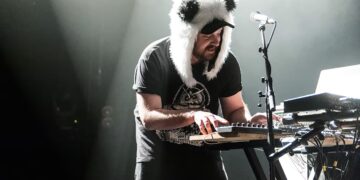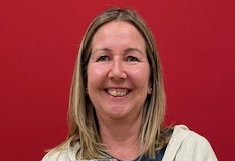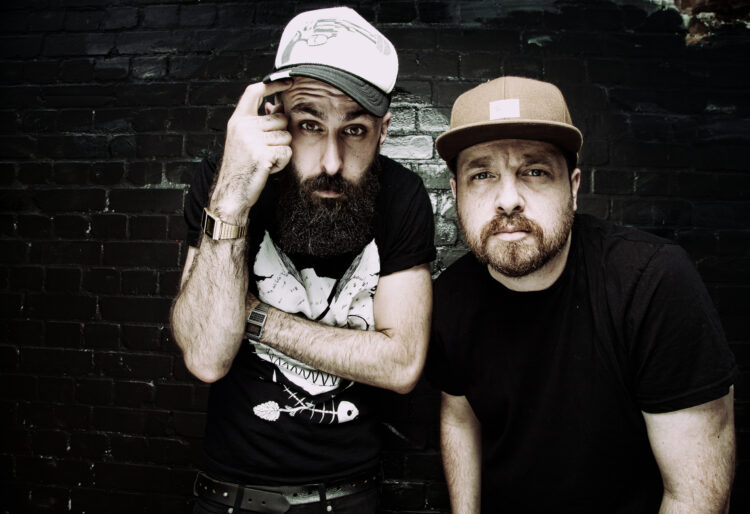ON FRIDAY, August 1, the long-awaited return of a duo which started here in Reading arrived with the surprise drop of a new album.
Hip-hop and spoken word pairing Dan Le Sac vs Scroobius Pip put out their first new musical release in 11 years, Live in Places (2006-2014).
The album is a retrospective, of sorts, spanning their formative years in the mid-2000s, up to shows which would prove to be some of their last before stepping away in 2014.
It does not, however, mark the return to the stage.
Speaking on the new album, Pip explains: “Dan had hinted at it, and then I kind of pushed it forward, thinking it was the 10 year anniversary of our last gig– then Dan had to let me know it’s been 11, so it wasn’t going to be.
“Not to get too deep, but we’d both been through periods on social media where it felt like we can’t talk about our career, because if we do, people get annoyed that we’re not touring any more.
“I’ve posted pictures before of really great memories that came up on my phone, and people have gone ‘oh, stop teasing us.’
“And it’s been long enough now that it felt like this would be a really nice way to celebrate what we did over the years.”
Dan says: “It’s just really difficult to be able to celebrate the stuff you’ve done without getting told off by the Internet
“We’re more willing to be told off lately– more resilient to it.”
Pip adds: “You’re allowed to like things from the past, but not necessarily want to go back there.
“I’ve no desire to be in school again, but that doesn’t mean I didn’t love periods of that.”
The new album features a number of mixes of some of the pair’s most celebrated songs from across their live performances and appearances.
It stands as a record of their work between 2006 and 2014, a parenthetical which Pip explains: “Alludes to what that album is in a short-hand way.
“It’s not one live gig that we purposely recorded to be released, it’s a collection from a load of different gigs over the years.”
One of those very first live gigs was right here in Reading’s own South Street Arts Centre.
“Reading is where we first shared the bill together–and maybe our second or third was at Plug and Play.
“It’s mad how relevant Reading is to our whole career.”
Dan, who has lived in Reading for a number of years, says: “I was also the promoter on three of our gigs.
“We had one at the Fez [Club], which me and my friend Tim played upstairs under the name I Bet Ya, and that’s where Pip played with the likes of Nathan Fake and Vincent Oliver.
“Downstairs was this group called Cracked, who did an electronica night every Sunday night at the Rising Sun Arts Centre.
“We wanted to use those opportunities to get on the bill, and that gig ended up being the first time I played as Dan, having been DJ Sackboy before that.”
Pip adds: “Mike [from Cracked] ended up putting in some money for the video for Thou Shalt Always Kill.”
That video would garner the moniker of ‘the most requested song of all eternity’ on John Kennedy’s XFM show, and was dubbed “the hottest track in the world right now” by Zane Lowe in 2007.
“That was our first video, which led to our whole career– I was living out of my van essentially, and we didn’t have one hundred quid each to film a video.
“I was paying two people’s rent at the time, and that became the start, what launched it all.
“We got to tour the world because of two blokes in Reading that promoted at the Fez– it’s always been key to us.”
However the world of music has shifted momentously since the mid-2000s, and the barrier for entry for a budding musician has become almost monolithic.
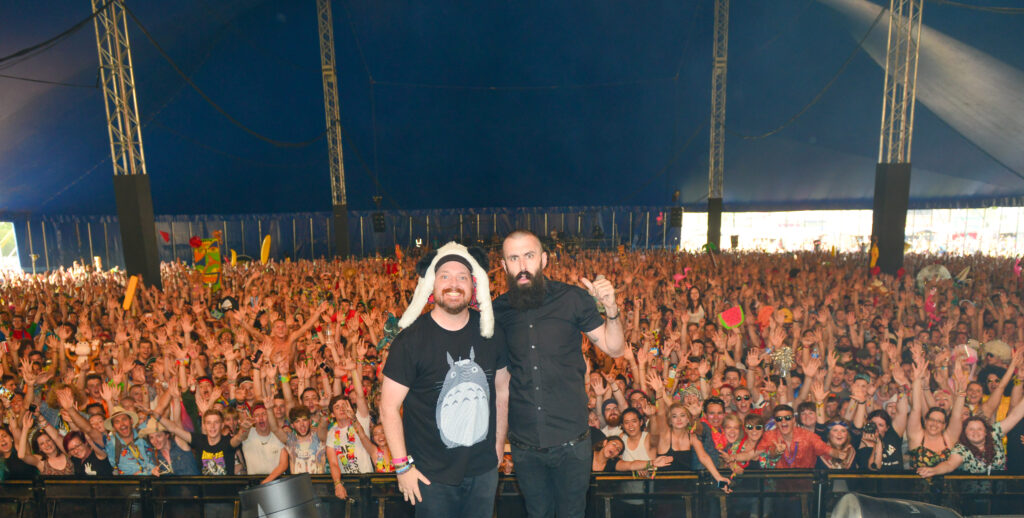
“Jeff Bezos could solve poverty in a day, but he’s flying Katy Perry to the moon.” – Scroobius Pip
With marquee streaming services paying fractions of fractions of pennies for streams, only the most ubiquitous acts see any return on people actually playing their music, and have to rely on touring to support themselves–an option that so many performers just don’t have.
And that is just one of the reasons that the album itself hasn’t appeared on services such as Spotify, Pip explains.
“Adding anything to Spotify–because of their support of Israel and just f*cking AI killing machines in general, their investment and support on that–feels weird.
“When you decide you’re not going to put it on Spotify, you think ‘are we going to put it on Amazon Music?’
“Well, Jeff Bezos could solve poverty in a day, but he’s flying Katy Perry to the moon for some reason–they’re all not great.
“BandCamp isn’t perfect, but it is–at least for the moment–still made for artists.”
Even BandCamp, however, is not necessarily immune from an almost ubiquitous decline–often dubbed the internet’s ‘ensh*tification’.
Dan says: “Eventually it will succumb–it has sort of already, but nowhere near…” he trails off– “it’s fine.
“I’ve been on it for about nine years now, and the first thing I put on there was Cherished, Overthrown.
“It was this collection of all the demos which I’d offered to Pip or [Rhode Island rapper and activist] B. Dolan, or [London singer-songwriter, producer] Sarah Williams White.
“And that then felt like a closing bracket on my career before I went and got a job.
“But it got a lot of support, which meant I kind of eeked it out– but no, I’m done. I always feel done.”
There’s also a closeness, an intimacy, with a BandCamp release, they explain, which isn’t there with more straightforward streaming services.
Not only can artists charge for releases, or encourage a pay what you want donation, the output is also made available for download to the user.
“If someone is buying the download, they’re gonna listen to it– they own it, it’s right there for them.
“Having put out multiple albums on streaming, you notice that the first track can get, like, 10 times the plays of the final track.”
Dan has composed a number of videogame soundtracks for the likes of Disney, as well as indie titles, including in the Tron franchise, both Subsurface Circular and Quarantine Circular, and Arcsmith.
This was particularly true of some of his latest output, his work on the soundtrack of the videogame Tron: Catalyst.
“It’s some of the best work I’ve ever written, but it’s in the last five tracks–they just don’t get heard compared to the start of the album, so format is important.”
Pip adds: “This is an album–not to get all ‘artists who had the peak of their career in the early 2000s’–but it is made to be listened to as an album.
“While it is taken from loads of different gigs, there was so much back and forth about how we get it right, making those transitions right, so that it isn’t jarring.
“If it’s on a streamer, the most popular four songs just get grouped together– it’s not been made that way.”
It also comes as something of a breakaway from previous attitudes to live albums.
Dan says: “Live albums kind of are generally live in this second class or B-list of bands.
“A record deal signs over your recordings; live performances are a different recording, so a lot of bands would sell off a live album to someone other than their record deal holder.
“Some live albums are just for people to grab some cash off of a label, and I think that means they’ve got a kind of tainted history.
“But a live album can be a really wonderful thing if you put the effort into it.”
Pip says: “Not to get too w*nky and artisty about it, but when we were touring, I had no desire for a live album.
“I loved the fact that those performances existed in those rooms at that time for those groups of people.
“There’ll be things that happen just for those people in the moment.”
He adds: “I always wanted to release our songs after the tour, once we’d played it a few hundred times and changed how we’d delivered them– everything evolves.
“On the rare occasion I heard an album version of one of our songs while out and about, I was taken aback.
“I’d think ‘oh is that how it goes?’–it was a bit rubbish on the album, and then it would get so much better.”
It has only become harder for many to separate their subjects and methods of consumption from the consequences of their actions.
Artists like Kneecap and Bob Vylan, most recently, have come under particular scrutiny for the views they espouse at live shows and in their music, while the heads of streaming services such as Spotify’s Daniel Ek invest hundreds of millions in AI military defence companies.
Pip says: “It’s hard to imagine at times that there are people who aren’t political in their consumption, especially when you’re deeply politically engaged.
“Everyone’s different–for those that aren’t all over it, it’s completely possible to just be alright with things.
“For us it’s great to be able to make that choice for ourselves, and not have to compromise.”
Dan explains: “When labels and distributors are involved, they’re taking their cut, so we kind of have to put it on the evil platforms, or nobody really gets paid.
“Whereas when it’s just the two of us on BandCamp, we can agree to take that hit.
“But it’s really hard with politics; I’ve always felt incredibly uncomfortable that I’m very politically vocal while also making money through a parasocial relationship with those who follow me.
“It’s a juxtaposition– if I go on social media and advocate trans rights every single day, I do make more money.
“I absolutely believe in trans rights–and I don’t mind making more money either– but that gets you into a dangerous situation where you can be seen as being disingenuous.
“I don’t want to be making money out of someone else’s pain.”
Pip says: “People have different limits and different amounts of exposure.
“I remember when the Harry Potter game came out recently– it seemed to me that any good person wouldn’t be streaming it because of JK Rowling.
“But I was speaking to somebody about it, and they asked ‘oh is she not a good egg?’
“And they just weren’t in on that– which was almost good in a way; it’s a lot of poisonous, very ugly stuff– but you’d assume that they were making a statement by endorsing it.”
Dan adds: “It’s about giving people a little grace, not assuming that because they haven’t posted that thing that they’re an evil person.
“People maybe don’t know or might need a gentle explainer– nine times out of ten it’s mild ignorance that can be fixed.”
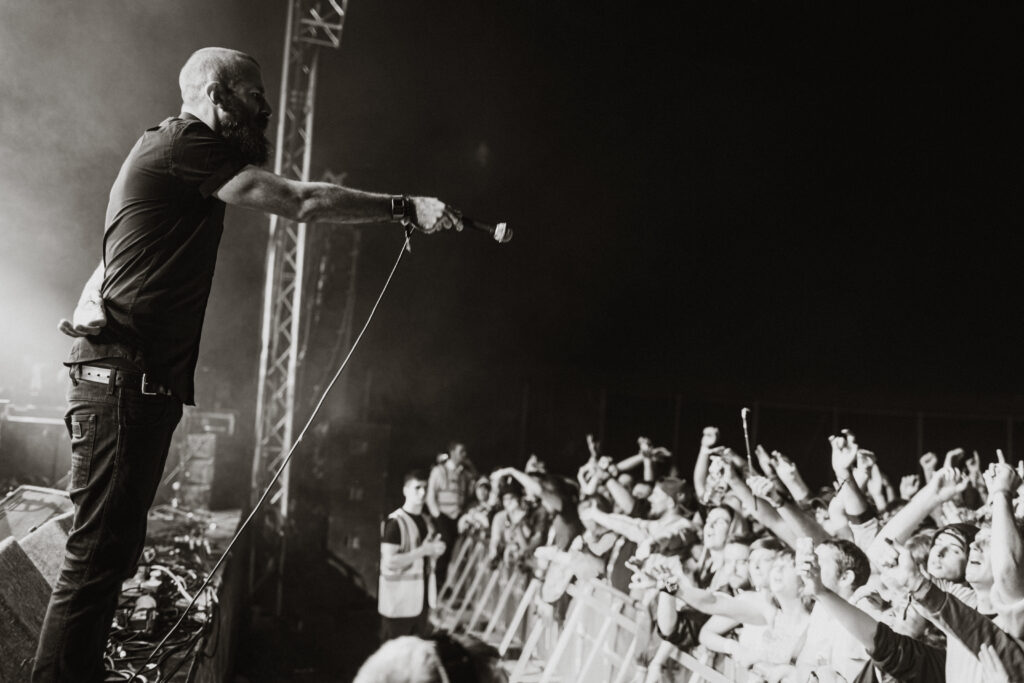
“I was just trapped in this house down Oxford Road, kicking my heels– Twitch was a way I could just exist and be in the world again.” – Dan Le Sac
Both Dan and Pip have, since leaving music and performance full-time, continued their direct engagement with their audience.
To date, Pip has amassed ten years’ worth of conversation, speaking to contributors from the fields of film and television, comedy, art, and social issues on his podcast, Distraction Pieces.
But they have also continued that ‘in the moment’ interaction through a different kind of streaming: live streaming.
Both attract audiences through Twitch, a service which sees viewers chatting and contributing while a performer plays videogames, crafts, produces music, or even just converses with the audience.
Dan says: “I only started because I was alone in the house; I met a streamer at a photoshoot or an event, and she was talking about it in terms of being such a social part of her day.
“We had just ended Dan and Pip, and I’d recently ended a relationship, so I was just trapped in this house down Oxford Road, kicking my heels.
“Twitch was a way I could just exist and be in the world again; I also started seeing a girl who lived in America (who I’ve now married!) and it was a way of us being able to be a part of each other’s day.”
Pip explains: “For me, it feels very distant from the live stuff, but I get reminders that I used to be on stage, and it feels so different.
“But it does scratch some of that itch– it is happening live, there’s that excitement and it can be in the moment–especially if there’s a lot of organisation.
“There can be moments that are like those old days, the pressure and the resulting buzz.”
Dan Le Sac vs Scroobius Pip, Live in Places (2006-2014) is available to stream and download via DanLeSacVsScroobiuspip.bandcamp.com

